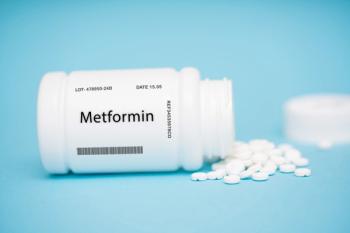
Insilico Medicine’s AI-Driven Breakthrough For IPF Treatment
The company recently announced promising results from its phase 2a clinical of an agent that the company says is the first to target Traf2- and NCK-interacting kinase, or TNIK for short.
Idiopathic pulmonary fibrosis (IPF) is a severe interstitial lung disease known for its high mortality rate. Despite the identification of potential drug targets for IPF, these have not successfully progressed into effective clinical therapies.
Insilico Medicine recently announced promising preliminary results from its phase 2a clinical trial for ISM001-055. This innovative small molecule is the first of its kind to target TNIK (Traf2- and NCK-interacting kinase) and was developed with the help of generative artificial intelligence (AI) to treat IPF.
The results of the clinical trial were published earlier this year in Nature Biotechnology.
The researchers conducted a randomized, double-blind, placebo-controlled trial that enrolled 71 patients with IPF across 21 sites in China.
“Our research identified TNIK as a novel anti-fibrotic target using an advanced predictive AI approach,” said Thomas Leichner, head of strategy and IR at Insilico. “This method allowed for an unbiased evaluation of potential targets by integrating multimodel ’omics datasets, including genomics, transcriptomics and proteomics," Leichner added
TNIK emerged as a leading candidate due to its involvement in various biological processes associated with fibrosis progression, such as myofibroblast differentiation and cell migration. Causal inference analysis revealed a strong connection between TNIK and key genes linked to IPF, including TGFB1 and FGF.
“Validation through single-cell gene expression data confirmed TNIK’s elevated presence in fibrotic tissues, including cytotoxic T cells and myofibroblasts, highlighting its significance in fibrosis pathophysiology,” Leichner said. “Our comprehensive analysis also focused on TNIK’s drugability, leading to the development of INS018_055, a highly specific TNIK inhibitor. This compound demonstrated selective anti-fibrotic activity in various animal models, improving overall lung function and ameliorating fibrotic processes in lung, kidney and skin disease models.”
The researchers found that INS018_055’s dual-action mechanism targets both fibrosis and inflammation, addressing gaps left by traditional therapies that primarily focused on fibrosis alone. “This AI-driven methodology not only streamlined the identification of TNIK as a therapeutic target but also showcases the potential of AI in revolutionizing drug discovery by navigating complex biological networks,” Leichner said. “Overall, this innovative approach marks a significant advancement in IPF therapy development, paving the way for addressing both fibrosis and inflammation.”
Now that the readout of the phase 2a readout jas have been released, the team continues to work internally and with the CRO to finalize results and release topline data.
“Our next step is to publish the results in a reputable peer reviewed journal as well as present them at a conference,” Leichner said. “Following the positive results from this Phase IIa trial, we plan to also engage regulatory authorities to discuss the design of a global Phase IIb study. The company aims to explore extended treatment durations and larger patient cohorts to further investigate ISM001-055’s therapeutic potential in IPF.”
Newsletter
Get the latest industry news, event updates, and more from Managed healthcare Executive.























